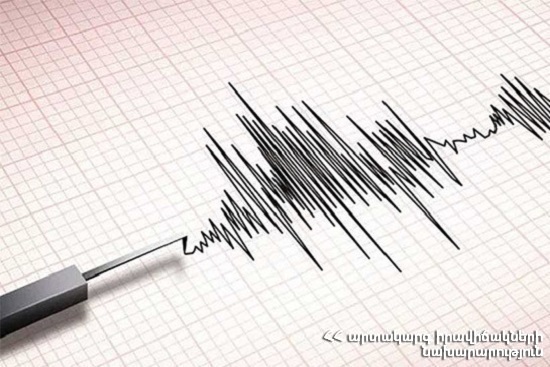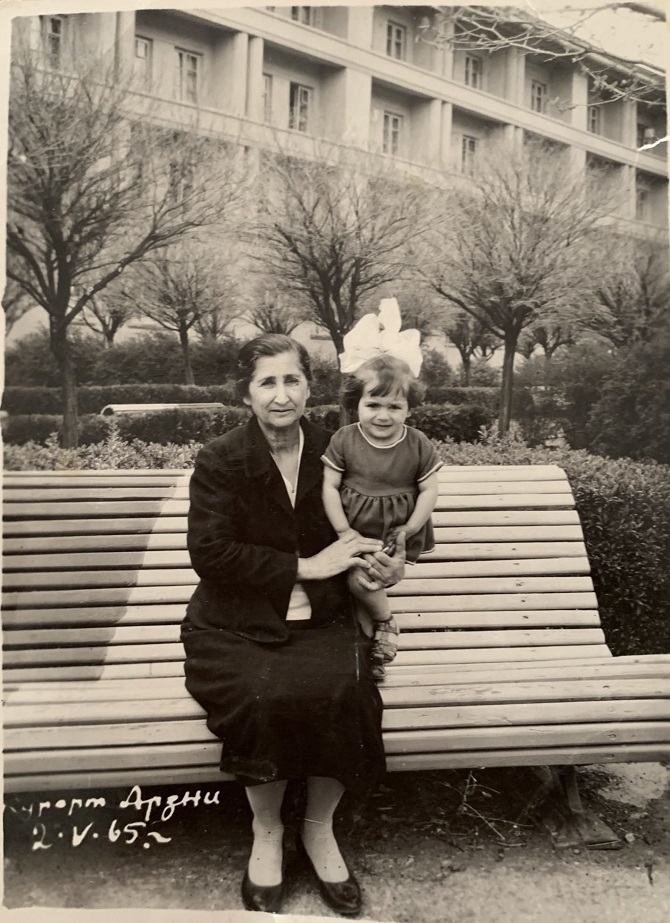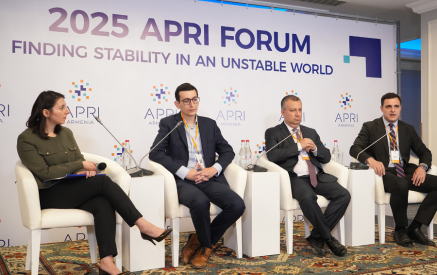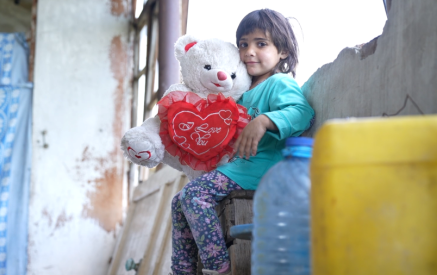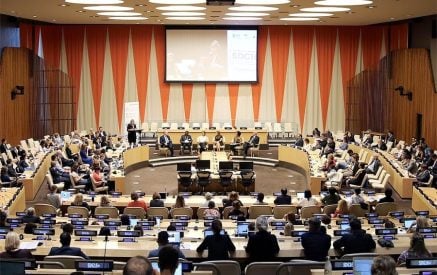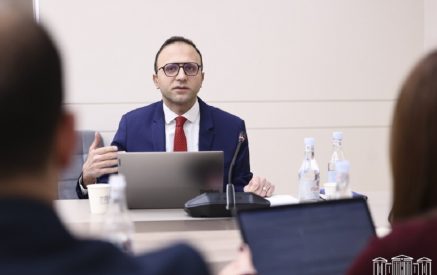The Armenian Weekly. “April 24,1915, what once bore Western Armenia has been wiped off the map,and from the blood of one and a half million Armenians the flowers once again were lit with a furious flame and the sunset blazed in a menacing glow.” – Gourgen Mahari
In the town of Igdir (Surmalu), they were born. There were houses with flat roofs for hot summer nights to sleep under the starry sky. Lush gardens and orchards were enveloping the houses, and the aroma of freshly baked bread from the opened windows were inviting for any stranger to come in. This was their world, the world of their existence and the world of their dreams. Yes, that’s how it was in those days, unforgettable and never vanishing from the memory of that generation, the generation of my grandma Amalia. She was nine, and like any nine year old, she had wonderful dreams of life and a future with her two sisters Erush and Dzunik and a brother Mamikon. Her father Simon Der-Danielian was the minister of the church and the respected leader of the community.
Life was an endless fairy tale for her and her siblings, until the night that came with the gallops of the three saddlers entering the yard. The noise will attract my grandma’s attention, and she would peek out of the window to see the visitors. To her amusement she would recognize the white horse saddler. This wasn’t his first visit; she recognized that voice and the face. That dominant voice that was talking to her father had sadness and concern, but never fear. He was the living legend of my nation and the fear of the Ottomans—General Andranik Ozanian. The nine-year-old will see her father’s saddened face and feel uneasy. She would follow with her glance the white horse disappear in the darkness of night, and long before the dawn her father would gather the community for the exclusive announcement: All Armenian families had to leave their native town Igdir within hours. There wasn’t time left for the simple question “why?” They had to hurry. Women and children had to be accompanied by several men. They had a long journey to the cold and flooding river Araks (Araz). They had to cross it.
Early morning hours were for all arrangements and preparations. They had to do it without causing any suspicions. It was like an electric wire running through the community. They were getting ready to abandon their beloved native town full of joy, happiness and dreams.
There’ll be no more mando tunes,
There’ll be no more landau sounds,
Hey, hey,
No, there won’t.
Gourgen Mahari
There won’t be tears. They would be frozen. There won’t be words either, but there will be hands stretched up to the sky and lips murmuring a prayer, alive certainly, but dead to the world.
The night will bring not only darkness and cold, but also fear and uncertainty. Women were told to pack light, traveling only with the essentials. At nine years old, my grandma would have her little handmade doll and a photo of her parents wrapped in the handkerchief, while she would wander in her house for the last time, not knowing that she would never have another chance to see it again. Her older sister Erush would run in to grab the family Bible; with tears in their eyes, they would close the door leaving their childhood inside.
It would be a long moonlit walk. The children would ask the innocent question, “Where are we going?” They were told they would be visiting relatives and staying there for a while.
But why was everyone in tears? She would not see her father a lot. He would be heading the caravan to arrange the crossing. The grassy, muddy bank of the river would hide them, while the men would make the rafts and attach them to each other with ropes. The cold, troubled waters of the mother river will be unwelcoming. No one except the brave would dare to get into it. My grandma knew that her father would be the one, not because of him being the minister, but because of him being an excellent swimmer.
He would lead the rafts and boats across the river by tying a rope around his waist and swimming across. My grandma would see him just for a couple of minutes to hear his controlled voice saying, “God is with us. Everything will be fine.” Then with the last Lord’s Prayer he would dive into the water. The current would be very strong. It would shake, drift and toss them from side to side, threatening to sweep them off. My grandma will lose her doll which would be washed away. Later, she would see another doll floating away; it wouldn’t be a doll but… a baby with a frozen smile.
She would recall the screams, cries and curses.Everything would be given to that life and death struggle, where you couldn’t recognize the people. It would be like the images from the underworld, where everyone was losing their minds. My grandma would look for her father, just to see him struggling against the current and a couple of times disappearing under the water, but the rope would remind everyone that he was still pulling it. The nightmare would seem endless, and she would spot him finally getting on the steady ground, exhausted and breathless. Other men help him tie a rope around the tree and pull the rafts to the bank. There will be another wave of grief, as many of them sob for their loved ones, resting in peace at the bottom of the river. With the last prayer for their souls, the exhausted caravan will move to Echmiadzin, the Mother Cathedral of all Armenians. That would be the last time my grandma and her siblings ever see their father. He would return to get the rest of the community to safety. He would enter the river, never to be seen again.
To this day I am the fourth generation of my family looking for any information about my great-grandfather Simon Der-Danielian from Igdir (Surmalu). If it weren’t for him and all other brave men and women, I and many generations wouldn’t be here today.
Karine Voskanyan
Main photo. Karine Voskanyan’s great grandfather Simon Der-Danielian and her great-grandmother





















































